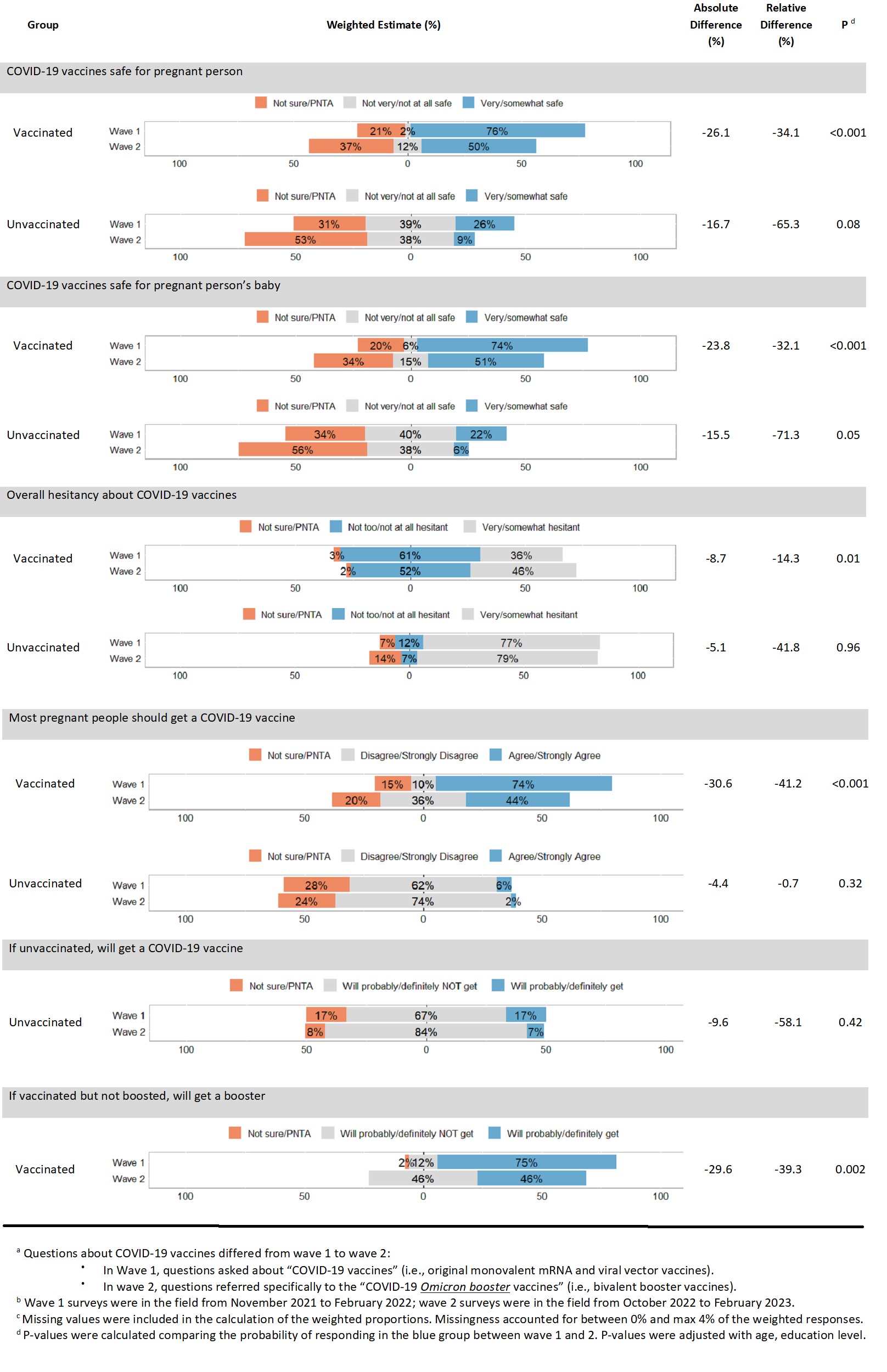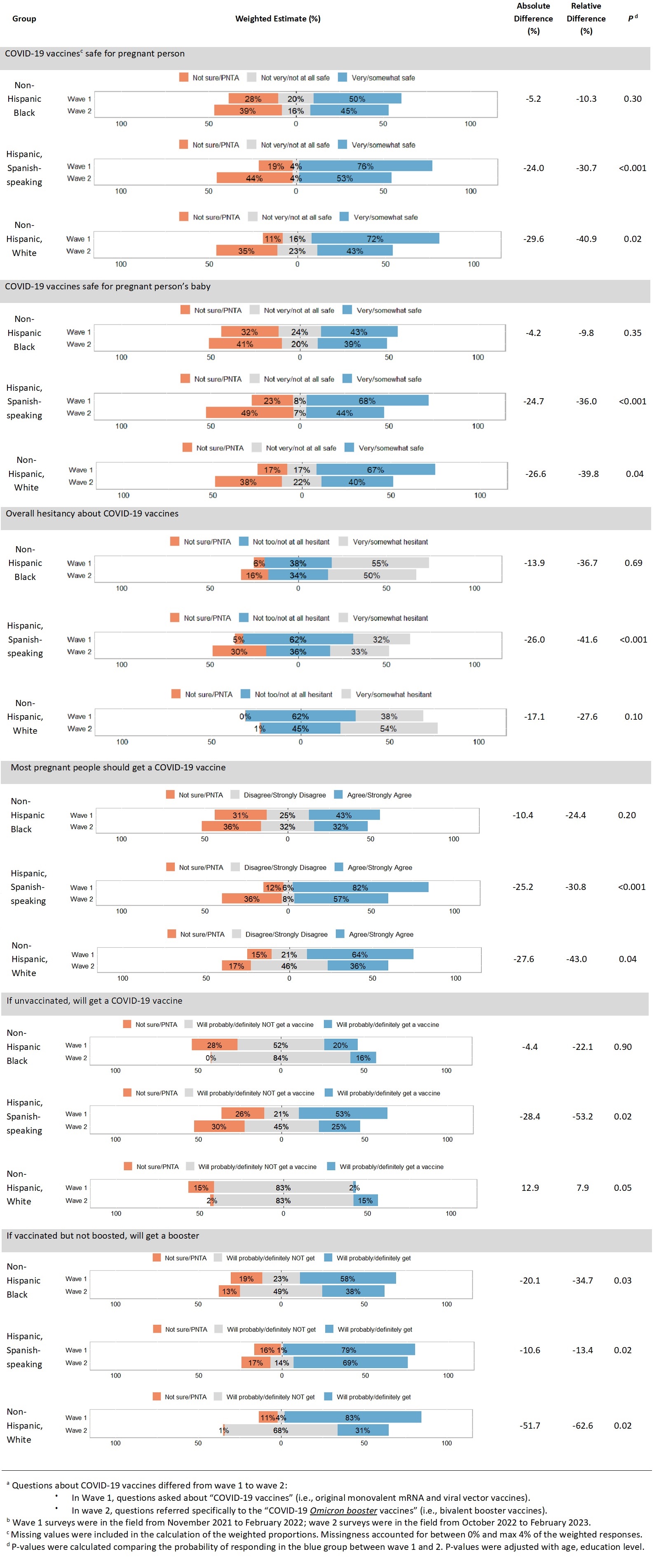Immunizations/Delivery
Session: Immunizations/Delivery 1
31 - Changing Attitudes toward COVID-19 Vaccines among Pregnant and Postpartum Vaccine Safety Datalink Members, 2021-2023
Saturday, May 4, 2024
3:30 PM - 6:00 PM ET
Poster Number: 31
Publication Number: 31.1674
Publication Number: 31.1674
- JW
Joshua Williams, MD
Assistant Professor of Pediatrics
Denver Health
Denver, Colorado, United States
Presenting Author(s)
Background: Pregnant people and infants are at high risk of severe COVID-19 outcomes, which can be mitigated by COVID-19 vaccination. Understanding changes in attitudes toward COVID-19 vaccines among racially, ethnically and linguistically diverse pregnant and recently pregnant people is key to public health messaging for these groups.
Objective: In a sample of pregnant and postpartum Vaccine Safety Datalink (VSD) members, to assess trends in perceptions of COVID-19 vaccines by (1) vaccination status, and (2) race, ethnicity, and preferred language.
Design/Methods: This was a repeated, cross-sectional survey within the Vaccine Safety Datalink, a collaboration of 13 healthcare systems and the Centers for Disease Control and Prevention. We created two separate cohorts, totaling 2956 pregnant or recently pregnant people (in the last 9 months), across 8 sites. To ensure representation from people often underrepresented in vaccination research, we over-sampled unvaccinated, non-Hispanic Black, and Spanish-speaking people. Surveys were sent to the first cohort from 11/21-2/22 (wave 1) and the second cohort from 10/22-2/23 (wave 2). Outcome variables of interest were vaccination status and perceptions of monovalent COVID-19 vaccines (wave 1) and bivalent Omicron booster vaccines (wave 2). Sample- and response-weighted analyses assessed attitudes by self-reported vaccination status and three race, ethnicity, and language groups: non-Hispanic White (English preferred), non-Hispanic Black (English preferred), and Hispanic of any race (Spanish preferred).
Results: Among 1127 respondents, response rates were 43.5% (wave 1) and 39.5% (wave 2). Respondents were more likely than nonrespondents to be White, non-Hispanic, and vaccinated by electronic health records (Table 1). Overall, 76.8% (95% CI: 71.5%, 82.2%) of respondents reported one or more prior COVID-19 vaccinations, with Spanish-speaking Hispanic respondents having the highest weighted rate among self-reported vaccinees. Across waves, perceptions of COVID-19 vaccine safety decreased among vaccinees and were stably unfavorable among unvaccinated respondents (Table 2). Perceptions of COVID-19 vaccine safety also decreased significantly among non-Hispanic White and Spanish-speaking Hispanic respondents from wave 1 to wave 2, while perceptions of COVID-19 vaccine safety remained variable among non-Hispanic Black respondents (Table 3).
Conclusion(s): Increasingly unfavorable attitudes toward COVID-19 vaccines over time in distinct cohorts of diverse pregnant and recently pregnant insured people are a public health concern.


.jpg)
